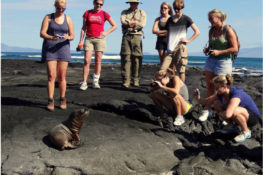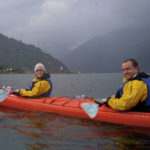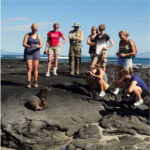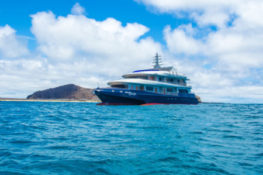Fellow Knowmad, frequent contributor, and ocean conservation guru Devin Harvey weighs in on the sustainability discussion.
Sustainability—the term, the concept, the practice—is now firmly implanted in the modern, global zeitgeist. No longer is it some radical, hippie-dippie theoretical construct reserved for the zealous environmentalist. Today, even corporate is climbing on board the sustainable train (though perhaps they waited a bit longer to see if that train was chugging—on renewable energy—toward Cashtown). Companies that value the lifespan of the commodities they buy, trade and sell, as well as the stakeholders and resources involved, will more often than not reap long-term financial benefits. While corporate buy-in to the sustainability mantra is essential for reversing global environmental decline, individuals play a significant role in steering public discourse when they shop, eat, and even travel.
Boiled down, sustainability is the endurance of things; the capacity for something expendable or exploitable to maintain or recover within a system, given time and space. Over-exploitation, in any form, threatens this ability to endure and much of humanity has a propensity for excessive consumption.
The sustainability discussion with which I am personally most familiar, is seafood. Working for the past four years for an ocean conservation non-profit organization has instilled in me a glaringly clear understanding of just how finite the Earth—and its resources—really is. Even the ocean, once thought to be a limitless bounty of protein, is under attack from overfishing, climate change, ocean acidification, pollution and myriad other human threats. Ocean exploitation is particularly compelling and also particularly challenging to combat because 1) you can’t see under the surface standing on the beach, 2) fish are not cute and cuddly, and 3) everything flows to the sea! If shrimp trawlers were able to fly over a forest in hopes of catching deer instead of shrimp, and they dragged their giant trawl nets through, ripping up trees, bunnies, bears, foxes, squirrels and every other adorable terrestrial critter, might you think twice about eating that venison stew?
Sustainability does not apply solely to the environmental discussion, however, nor to the financial discussion for that matter. Not only can things, like natural resources, suffer from relentless human pressure, but also people, ideas and cultures. This is a particularly sensitive subject for the world traveler. In a hyper-globalized world the importance of socio-cultural responsibility and cross-cultural respect cannot be overstated. When we travel, not only does a place feel the impacts of our footfalls, but it also feels the impact of our humility, or lack thereof, in a world unlike our own. Far more subtle than a massive net tearing through coral reefs, trapping thousands of non-targeted animals, threats to cultural sustainability can be imperceptible. However, history need be our only witness to the disappearance of cultures.
Currently, the Moroccan government is pushing for more travel to their country by adding “no frills” flights from numerous European cities, attempting to raise the number of annual tourists to ten million in the next four years. Last year the North African country attracted only 2.5 million visitors. Not only are there fears of over-crowding and unattractive development but also of a water crisis. Modern hotels and resorts, with swimming pools and trickling fountains (not to mention highly consumptive guests) will greatly increase demand on the water supply. A broad-based, massive scale infrastructure change like this produces a vast array of jobs and brings significant revenue into the country, but at what cost to the people, the values, the beauty, and the sounds in the markets of Marakesh or the coasts of Casablanca? Airport, road and train station expansions are underway in Marakesh and there’s no turning back.
Morocco may regret not considering an approach that would balance immediate economic gains with long-term impacts on the tangible and intangible things that make a place worth visiting. A more responsible approach to spurring tourist revenue would allow for greater cultural and environmental sustainability while avoiding a situation in which a country or city becomes reliant on tourism and their people find themselves entertaining guests forever with few other options for maintaining their livelihoods.
We have an opportunity when we travel, and that is to listen and watch, to eat and drink, to ask and absorb and ultimately to grow without taking. It is my humble opinion that when we do that we discover an opportunity to share and to contribute to a cultural exchange and experience, as opposed to cultural consumption. So explore the places big and small, far and near, exotic and local, and wherever you go, tread lightly and listen carefully.


























